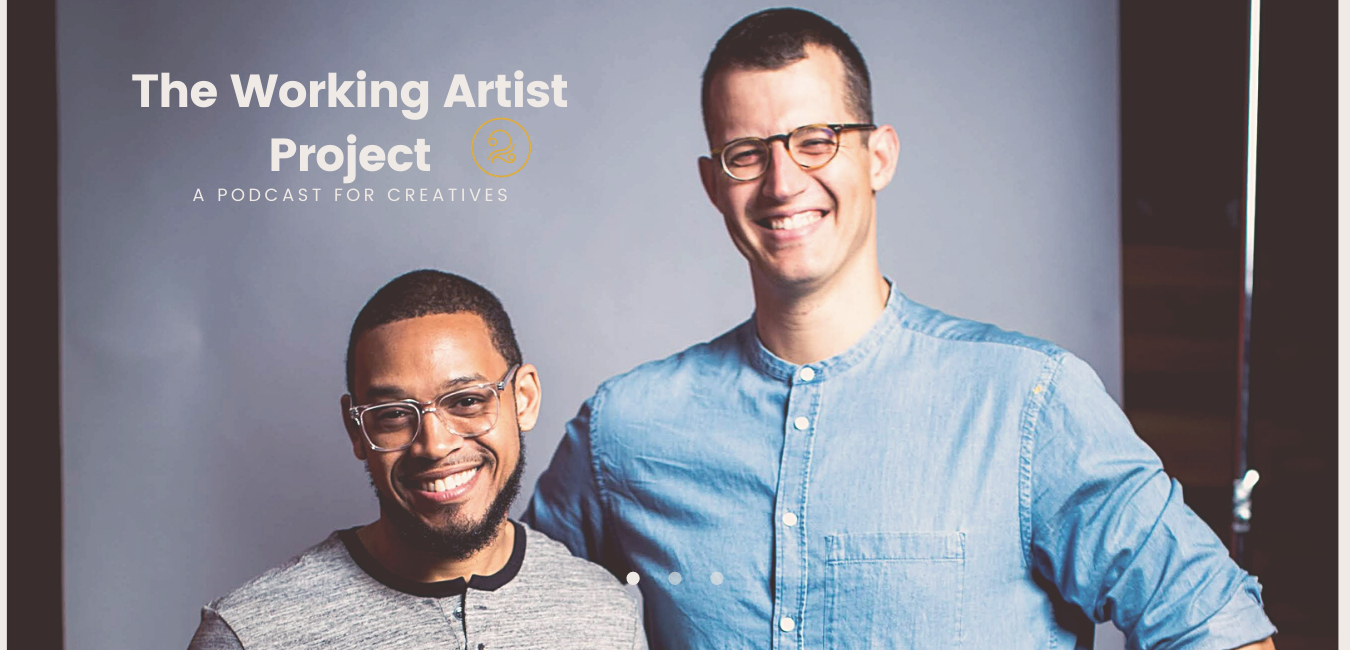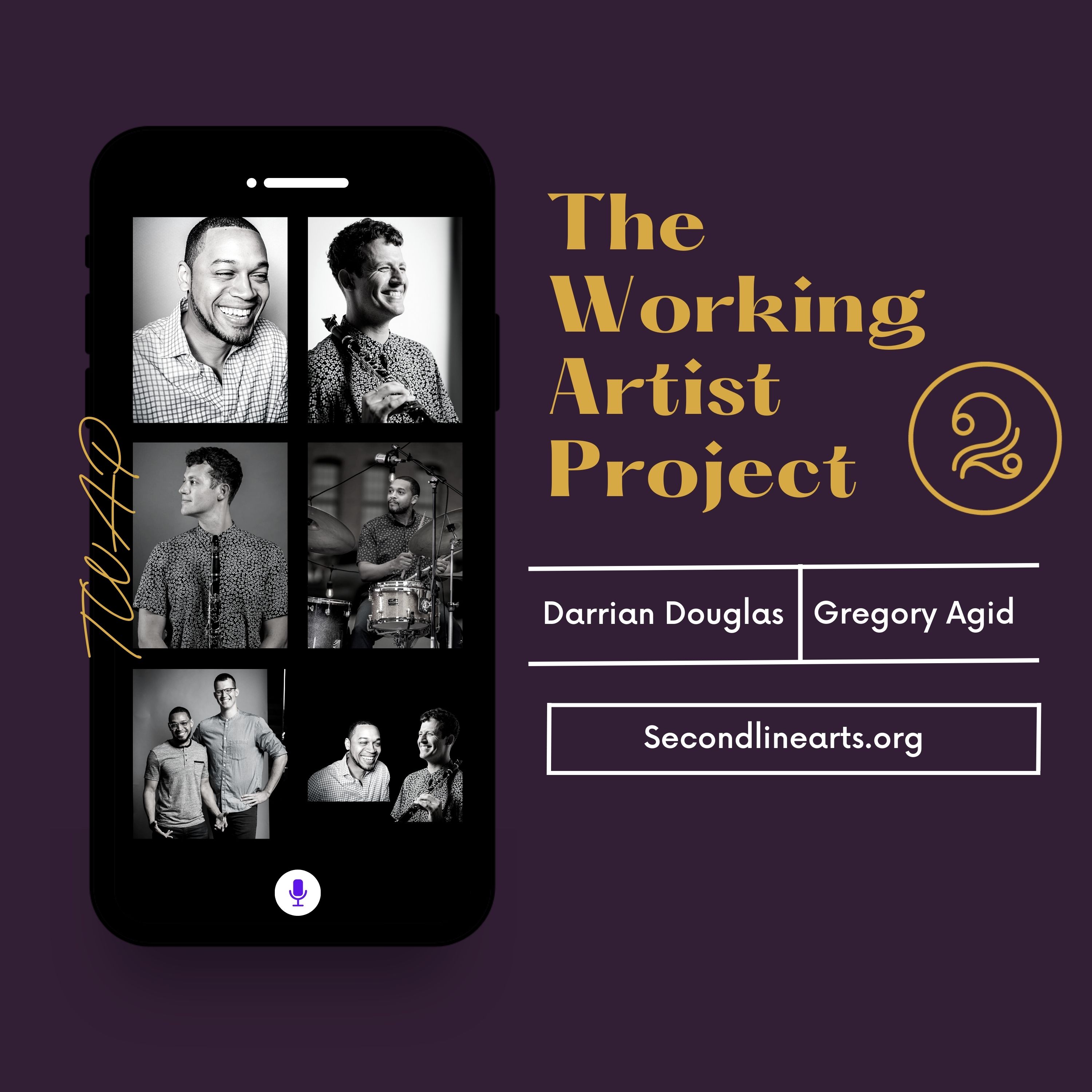Episode 73
Roderick Paulin on New Orleans Legacy and Music Business
Support us here: Secondlinearts.org
Connect with us:
https://www.instagram.com/secondlinearts/
https://www.instagram.com/roderickpaulin/
RODERICK PAULIN FULL BIO
Roderick Paulin is one of the most soulful, versatile and accomplished saxophonists in New Orleans. That status has been understood by musicians for years now, and when an artist as experienced, astute – and not prone to hyperbole – as great New Orleans singer Germaine Bazzle says of Roderick Paulin, as she recently did with unabashed enthusiasm, “I just love the way he plays” – or awardwinning composer and educator Roger Dickerson adds, “Roderick is quite special, truly creative – he was one of my ‘top students’ at SUNO (Southern University New Orleans)” – those are cues for the rest of us to take note of the talents of Roderick Paulin. If the name Paulin sounds familiar, there’s a reason for that – Roderick is the twelfth of the thirteen children – ten boys, three girls – of legendary New Orleans bandleader Ernest “Doc” Paulin and his wife Betty. “Doc” Paulin – who passed away in 2007 five months after his 100th birthday – led bands on the streets of New Orleans for over 70 years. He insisted that the musicians in his bands adhere to certain standards: show up on time – and arrive dressed in the traditional brass band attire of white shirt, black pants and tie, well-shined black shoes and band cap. “Doc” Paulin also gave many young players their start – a “Doc” Paulin gig was often a player’s first paying job, and many who got started with “Doc” have gone on to musical prominence – clarinetist Dr. Michael White, saxophonist Donald Harrison, Jr. and trumpeter Gregg Stafford among them. Six of “Doc” and Betty Paulin’s ten sons elected to pursue music professionally, and they have worked together for many years now as the Paulin Brothers Brass Band. Roderick Paulin grew up in these musically-rich surroundings, and remembers, even before he started playing alto sax in the fourth grade, daydreaming about someday standing in front of an orchestra and conducting it. Roderick was so intent on getting started learning the alto, in fact, that when his fourth grade band director announced on a Friday that the following Monday he would finally distribute the instruments the students had chosen to play, Roderick walked to the man’s house on Saturday, camped out on his front porch all day, and knocked on his door multiple times in hopes of getting his hands on “his” saxophone a couple of days early. To no avail, as it turned out, but he was playing – and loving it – soon enough. Just two years later Roderick played his first gig with his dad’s band, subbing for a saxophonist who cancelled at the last minute, but not without some trepidation. “I was worried,” Roderick recalls, “because I only knew maybe two and a half songs – but my dad told me, ‘just use your ear, you’ll be fine’ – and I got through it okay.” From that point on Roderick made gigs with the “Doc” Paulin band and others, continued to play in school bands, and came up with a way to teach himself more about a side of music he was increasingly drawn to, modern jazz. Community radio station WWOZ featured a three-hour modern jazz program each weekday morning – and Roderick regularly loaded up an older brother’s two-cassette jambox with a pair of 90 minute cassette tapes, taped the ‘OZ show – then listened to it when he got home from school. He’d often play along as he listened, and sometimes try to transcribe a solo or whole tune, all the while sharpening his ear and adding to his repertoire. After high school, Roderick studied music at Southern University New Orleans (SUNO), coming under the guidance of two of New Orleans’ most able music educators, saxophonist Edward “Kidd” Jordan, and the previously mentioned pianist and composer Roger Dickerson. Their counsel gave Roderick a clear understanding of just how much work – and the sort of work – he’d have to do to get where he wanted to be as a player and all around musician. It was also at SUNO that Roderick Paulin met the Frazier brothers, sousaphonist Philip and bass drummer Keith, and accepted an invitation to join their band, the Rebirth Brass Band. Roderick toured the world and recorded with Rebirth, switched to tenor sax as his primary instrument, and began to write and arrange music while in the band. Paulin eventually wearied of Rebirth’s relentless touring schedule, and that, coupled with growing responsibilities with his own young family, persuaded him to step away from a fulltime performing career in music. He took on day jobs – some - public school band director, for instance – connected with music, others – a long tenure with AT&T – not – but always kept his hand in by taking whatever night and weekend gigs his work and family schedules would allow. In December 2017 Roderick Paulin retired from his position as band director at Martin Behrman High School in New Orleans to devote himself fulltime to playing and composing music. That commitment came in conjunction with the release in 2017 of his 12- years-in-the-making, critically acclaimed double cd, Slow but Steady. Roderick Paulin made use of top-notch players on Slow But Steady, with such Crescent City stalwarts as Herlin Riley, Delfeayo Marsalis, Tony Dagradi, Larry Sieberth, Shannon Powell, Richard Moten, Mike Esneault, Wendell Brunious, Jamil Sharif, Don Vappie, Chris Severin, Jason Marsalis and George French among the more than 30 ace players who contributed to the cd. New Orleans music journalist Geraldine Wyckoff reviewed Slow But Steady for OffBEAT magazine in October, 2017, “…Slow But Steady took a dozen years to produce. It proves itself to be worth the time and dedication both musically and as a true documentation of the artists and the sound of the city. That’s what makes Slow But Steady a real New Orleans album.” Roderick Paulin adds, “I feel really blessed to try to put out something that represents who we are not just as musicians but as people.” In 2018 Paulin recorded his R&B project called DA HUSTLE DON’T STOP covering classic tunes by Stevie Wonder, El DeBarge and Barry White – plus some original compositions to be released in February 2019. You can catch Roderick Paulin live most Wednesday nights with Delfeayo Marsalis and the Uptown Jazz Orchestra at Snug Harbor Jazz Bistro in the heart of the Frenchmen Street corridor. He wears many hats well that’s for sure because that’s what successful musicians do who loves what they do and to do it well and at 50-years old, taking more of a front-man role these days, Roderick Paulin loves to do what he does wherever he is. More information is available at www.roderickpaulin.com


